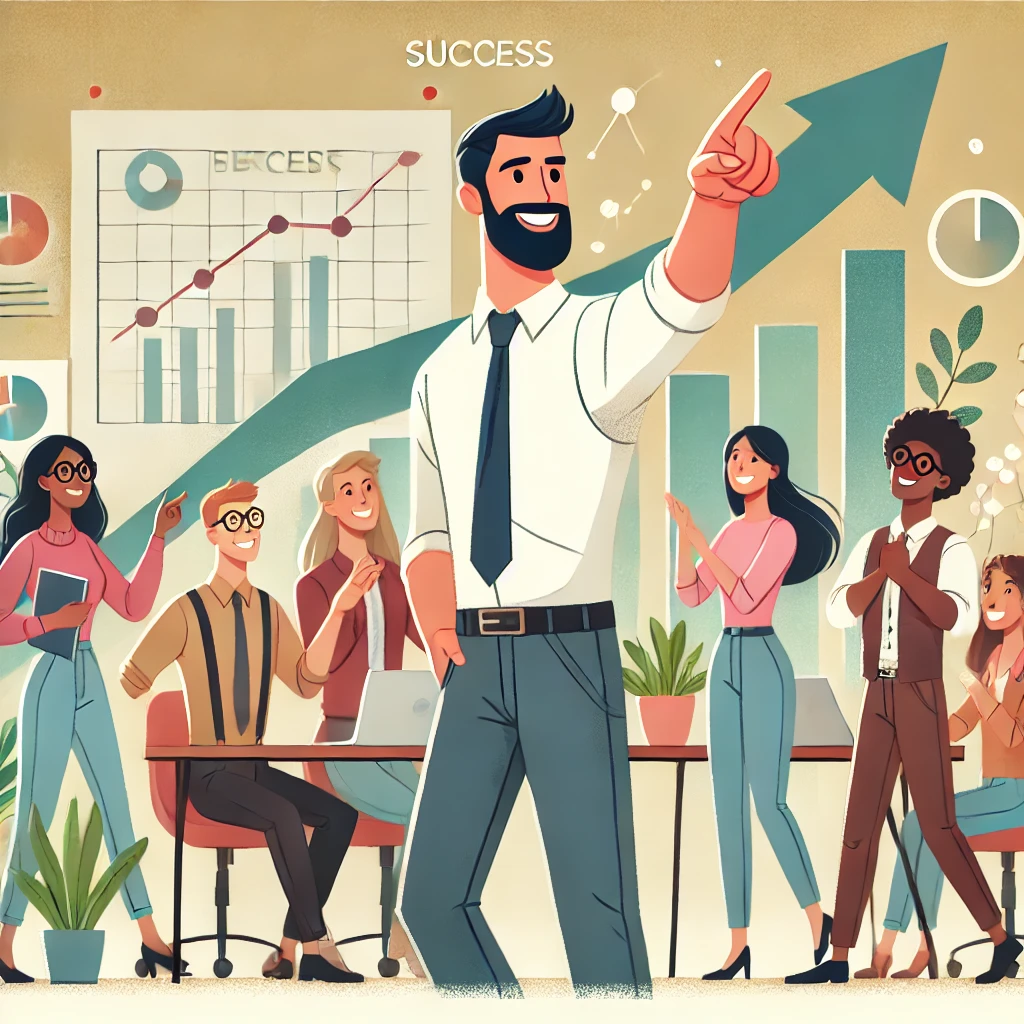Jump to the section
- Why Defining Leader and Leadership Matters?
- What It Means to Be a Leader: Beyond Titles and Authority
- Leadership as the Art and Science of Influencing Others
- Leader vs. Leadership – What is the Difference?
- Principles of Leadership for Effective Leadership
- Defining “What Leadership Is for You?”
- Start Your Leadership Journey
Why Defining Leader and Leadership Matters?
Many people find the terms of leadership and management confusing. In today’s business world, there are no concrete definitions of a leader and leadership. Anybody with authority can name herself a leader and promote her leadership style. Therefore, the terms are either misunderstood or oversimplified.

Having a clear concept of a “leader” and “leadership” is vital, especially for those developing themselves to become future leaders. In this article, you will learn what makes a leader. You will get the definition of what leadership means in the business world and the principles of leadership that you need to develop and master. Our goal is to make you think about what leadership is for you and how to develop yourself into an effective leader.
What It Means to Be a Leader: Beyond Titles and Authority
A leader is neither a position nor an authority. A leader must have the charisma to inspire, motivate, and guide others with a shared vision. To become a leader, she must have followers who want to follow the leader in any way. So, people will not follow with enthusiasm and motivation only based on authority.
Thus, a leader must cultivate trust and an inspiring culture. In that way, a leader can influence and drive other people in a common direction. She sets the tone, shapes the culture, and drives decisions. A good leader must have a clear purpose, be self-motivated, and act with integrity. Some individuals may own these qualities naturally, and some can develop them. Anyone can become a leader with the right mindset, training, experience, and dedication.
Leadership as the Art and Science of Influencing Others
Leadership is the process of applying influence and motivating other people. It is a strategic and thoughtful process. It involves guiding and motivating a team toward a common goal and vision. Its main goal is to create a positive environment and culture to help people achieve their goals. Their goals can be projects or business aims. They can also be for personal development or new skills.
The Principle of Leadership is to align the leader’s vision with the team’s goals. In other words, leadership is about balancing business and personal goals. The leader’s leadership style and the occasion determine how to put this process in place.
Leadership involves effective communication and fostering collaboration. People need to feel empowered and be willing to take ownership of any occasion possible. Thus, leadership is not a rigid process; it is dynamic and adaptive. The leader must select a fitting leadership style. It should address the unique needs and challenges of each situation.
Leader vs. Leadership – What is the Difference?
The terms “leader” and “leadership” are often interchangeable. Thus, for future leaders, it is vital to understand the meaning early on. In that way, they can develop the right mindset and use them correctly in their journey. We can provide the following definition:
- Leader: An individual who influences, motivates, and guides others toward common goals. She needs an innate force and skills to connect with others and influence them.
- Leadership: The strategic process and principles of guiding and influencing a group of people toward achieving those goals. She needs to develop leadership styles for leading others.
By knowing the difference between a leader and leadership, future leaders can develop themselves better. They can focus on personal development and emotional intelligence to become better leaders. They can also focus on training and techniques to develop their leadership style. Future leaders need both: to develop their skills and learn how to lead.
Principles of Leadership for Effective Leadership
The principles of leadership are key skills and elements that the future leader needs to understand and master. These principles are the foundation of effective leadership.
- Vision: A leader must have a clear and compelling vision. Vision provides inspiration, direction, and purpose for him and his team.
- Communication: A leader must be able to communicate effectively. He has to articulate the vision, provide clear guidelines, and be able to listen to concerns.
- Integrity: The leader must gain the trust of the other people. So, leaders must act with integrity and honesty. They must consistently prove their actions and decisions.
- Empathy: The leader must show an understanding of the perspectives and emotions of others. In that way, the leader must cultivate strong relationships, build trust, and enhance cohesion.
- Accountability: A leader must take responsibility and show ownership of his actions and decisions. He must take responsibility for the performance of his team and build credibility.
- Adaptability: The leader must show flexibility in changing environments and circumstances. In that way, he must remain flexible and resilient, able to pivot strategically if needed.
- Inspiration: The leader must have the charisma to inspire others with his actions and words. He needs to be an example of achievement, performance, and ethics.
Defining “What Leadership Is for You?”
The question of “What is leadership for you?” for each of us is a very personal one. It is important to reflect on your own experiences, values, and goals. There is not a recipe for becoming a leader. Becoming a leader is a set of qualities, skills, and character required for a specific circumstance. You can be a business leader or even a leader at home or in a sports team.

For some, leadership is achieving goals, and for others, it may be to inspire others. How we practice leadership is very contextual. It has to fit our character, unique skills, and self-motivation. Select the leadership style required for each moment that fits best for you.
If you positively influence people and foster a culture of growth, innovation, and collaboration, then you are a leader. Practicing and mastering leadership is a journey of self-discovery, learning, and evaluation.
Start Your Leadership Journey
Start your leadership journey now and embrace challenges as growth opportunities. Lead by example, inspire others through your actions, and listen actively. But it is also important to grasp the definitions of a leader and leadership as you progress.
A leader is an individual who influences and inspires others to follow his vision. He inspires with his integrity and connects with others through empathy. Leadership is the process that a leader must follow to achieve his vision. An effective leader must adapt his leadership style to different situations and people.
Remember, effective leadership is a skill honed through practice and reflection. Start today, and watch your influence grow. Celebrate successes and learn from failures.
